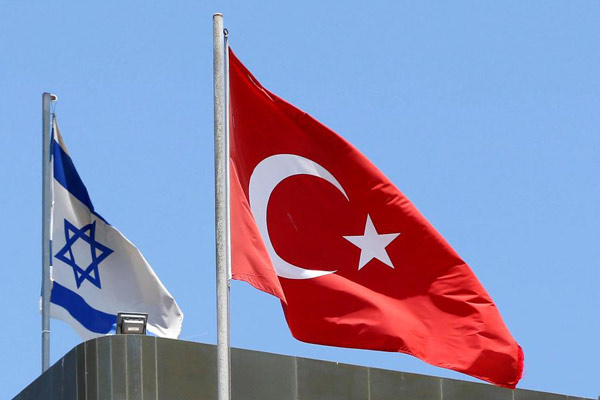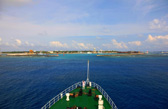Geopolitical reality main driver behind Israeli-Turkish reconciliation
(Xinhua) Updated: 2016-06-29 11:08
 |
|
A Turkish flag flutters atop the Turkish embassy as an Israeli flag is seen nearby, in Tel Aviv, Israel June 26, 2016. Picture taken June 26, 2016. [Photo/Agencies] |
JERUSALEM - After six years of animosity, Israel's reconciliation with Turkey was announced on Monday. The deal, which marked the beginning of a new geopolitical reality in the region, enables the two countries to normalize relations, but the road ahead could be bumpy.
The agreement, which still remains to be ratified by Israel's cabinet and Turkey's parliament, is the epitome of realpolitik on both sides and it is perhaps exactly what is needed in the volatile Middle East, observers here say.
The Israeli government is hailing the agreement as a success. Its terms do show achievements for the Jewish state.
Israel and Turkey used to be close allies. In 2010 when a Gaza bound flotilla originating in Turkey tried to break Israel's blockade on the territory, a forceful Israeli intervention killed nine Turkish citizens and created a huge rift in the relations between the two countries.
The agreement was greeted by many but questioned as well. Both Israeli Prime Minister Benjamin Netanyahu and Turkish President Recep Tayyip Erdogan said they received all what they had asked for. The truth is somewhere in the middle -- this way each leader can capitalize politically.
As part of the deal, the countries will restore full diplomatic relations which were downgraded immediately after the incident.
Israel will pay 20 million US dollars in compensation to the families of the Turkish victims.
Turkey will be allowed to begin aid projects in the Gaza Strip and deliver goods to the impoverished territory through an Israeli port in the south of the country.
Throughout the negotiations, Turkey had insisted that the blockade on Gaza be lifted and sees this as a sign of Israel essentially doing just that.
Speaking in Rome after announcing the deal, Netanyahu said the blockade is still in place.
Turkey will be allowed to send goods into Gaza through an Israeli port, which means Israel still controls what goes into Gaza. In addition, perhaps more importantly, Israel still controls the traffic of Gazan residents -- most of them not allowed out of the impoverished territory.
Raphael Ahern, a diplomatic correspondent for the Israel Times said the agreement "allows both sides to save face."
Israel had already in the past issued an apology for the incident and had agreed to compensate the families. Some in Israel believe such compensation is unprecedented.
In a Facebook post, Israeli opposition leader Isaac Herzog called the financial settlement "unfathomable," saying "every Hebrew mother should know that right wing leaders will compensate your son's attackers."
A poll conducted by Israeli Channel 10 hours before the agreement was announced showed that the majority of Israel's were unhappy with the deal. About 56 percent were against, 33 percent were in favor and the remaining 11 percent did not know.
For many Israelis, the compensation is a difficult pill to swallow, as expressed by Herzog.
In addition, Israelis expected to receive the remains of two missing soldiers who were killed two years ago during the last war Israel fought with Hamas in Gaza.







